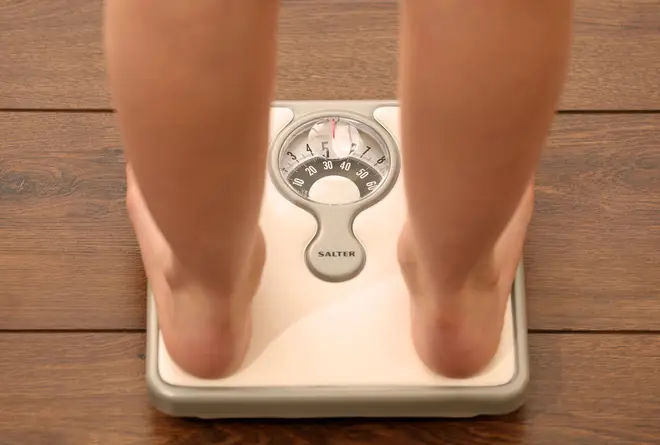
James O'Brien 10am - 1pm
27 August 2020, 00:30

A tax on sugar-loaded food and sweets could help tackle childhood obesity and save the NHS billions of pounds, according to a new report.
The Institute for Public Policy Research (IPPR), a left-wing think tank, has called on ministers to go further than the Government's own obesity crackdown measures by extending its sugar tax, which is already applied to fizzy drinks, to unhealthy foods.
Prime Minister Boris Johnson last month revealed the Better Health campaign, designed to encourage Britons to slim down, both to ease the pressure caused by obesity on the NHS and to assist people in surviving a brush with coronavirus.
Junk food adverts before the 9pm television watershed when children are more likely to be watching are set to be banned, along with tempting confectionery stands next to checkout tills, in a bid to prevent children from picking up bad eating habits at a young age.
But IPPR, in a report published on Thursday, said more needed to be done to bring child obesity levels down to the low levels of the 1980s - a move that could save the NHS £66 billion over the course of the children's lifetimes.

Government support in fighting obesity crisis is crucial
The think tank stated that fewer than 2% of children had obesity in the 1980s but today a fifth of children entering secondary school are classified as medically obese, according to publicly available data it analysed.
To ensure that the Government reaches its target of halving child obesity by 2030, the IPPR recommends that a non-essential levy of 8% is applied to unhealthy foods exceeding a set "energy density".
The report authors said that similar taxes on junk food in Mexico and Hungary had been successful in driving down consumption and argued it would provide an incentive to food producers to reformulate their products to be healthier.
It also called for a healthy food subsidy scheme, worth £21 per week, for all children on free school meals, redeemable for any essential foods, in a bid to recognise the demographic inequality at the heart of the obesity crisis.
Costing around £1.5 billion a year, the scheme would be funded by the levy on fattening food, said the IPPR.
With improved lifestyles and diets reducing the prevalence of deadly conditions like cancer, heart disease and diabetes, the IPPR predicted such health-conscious policies could take the strain off the NHS.

"NHS bike scheme will never lower obesity," insists caller
Chris Thomas, IPPR senior health fellow, said: "In July, the Government made welcome commitments to tackle obesity, but faced with the scale of the obesity epidemic, it was just one small step, not a giant leap.
"The disastrous impact of obesity on our health and society demands we go further.
"Success could facilitate the kind of major health gains the Victorians achieved through sanitation, or childhood immunisation in the 20th century.
"Failure could mean a century of stalled progress.
"Historically, major progress on health outcomes has come when contributions have come from across society - when business, community, people, government and public bodies have all played their part.
"We call on Government to recreate that approach."
Labour said action on child obesity was required just as the Government had set about "abolishing" Public Health England.
Shadow health secretary Jonathan Ashworth said: "This report is a stark reminder we are amidst a childhood obesity crisis and that we need concerted Government effort to bring obesity levels down.
"But instead of prioritising immediate action, ministers are embarking on a risky reorganisation including abolishing Public Health England and now can't even tell us who will be responsible for driving forward obesity work."
A Government spokesman said: "We are committed to helping everyone live longer, healthier and happier lives as part of our prevention agenda.
"Our new world-leading obesity strategy, which includes cutting sugar from half of the drinks on sale and banning the advertising of unhealthy food on television and online before 9pm, will help people to make healthy choices for themselves and their families.
"This aims to significantly reduce childhood obesity and continue the huge progress we have made towards our goal of halving childhood obesity by 2030."